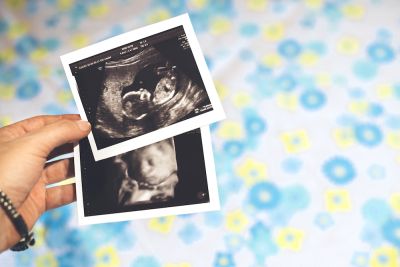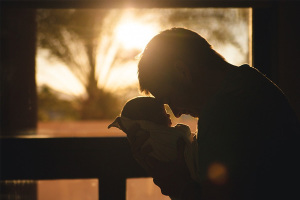Embracing modern science means overturning Roe

In 1973, the Supreme Court handed down the landmark Roe v. Wade decision allowing for virtually unlimited access to abortion through nine months of pregnancy. The Court justified this decision by sidestepping the matter of whether children in the womb are alive. As Justice White explained in his Roe dissent, “The Court apparently values the convenience of the pregnant mother more than the continued existence and development of the life or potential life that she carries.”
The Roe decision to prioritize mothers seeking elective abortions rests on the outdated scientific opinions available to the Court in 1973. The Court fallaciously appealed to ignorance by permitting abortion based on a lack of knowledge about when life begins. In the opinion of the Court, Justice Blackmun wrote, “We need not resolve the difficult question of when life begins. […] The judiciary, at this point in the development of man’s knowledge, is not in a position to speculate as to the answer.”
There can be no doubt, however, that the human understanding of the world has shifted immeasurably in the past 48 years.
In 1973, the disposable camera was 13 years away from being invented, and the rings of Neptune would not be discovered for another decade. The Walkman would not hit the market until 1979. Doctors still operated on infants without anesthesia because they were not yet aware that babies could feel pain.
In terms of science and technological advancements, the practices of 1973 ought not govern the modern world. As lessons are learned and further information is gained, it is senseless to maintain outdated practices. When DNA fingerprinting was discovered in 1984, forensic teams did not insist on maintaining their current practices for the next 50 years; rather, the technology solved its first murder case two years later.
In 2021, the science is clearer than ever that infants in the womb are alive from the point of conception. A modern understanding of DNA reveals that human zygotes have completely unique genetic compositions, determining traits from eye color to aspects of personality, from the very point that they are fertilized. A 2019 study emphasizes that light is visible to children in the womb even as their eyes are closed.
The contemporary practices of prenatal health care have greatly adapted as well. Though the point of viability was thought to be at 28 weeks in 1973, it is now known to be at 22 weeks. The most premature infant to survive was born in 1987 at just 21 weeks gestation. Fetal surgery performed on children in the womb has successfully treated a host of developmental conditions, including spina bifida. Based on the Roe decision, which refused to consider whether infants in the womb were alive, children of the same age to be born or receive operations can just as easily be electively aborted at the mother’s discretion.
The case for reevaluating the substance of Roe is clear. Just as textbooks are updated when new facts become available to ensure that children learn the most recent information, the modern Court’s rulings must be based on current knowledge rather than the claim to ignorance of the Court in 1973. Legal precedent must not triumph over the necessity to acknowledge modern science.
As the Supreme Court will soon consider a direct challenge to Roe in the case Dobbs v. Jackson Women’s Health Organization, they face a pivotal decision: abide by the outdated excuses of 1973, or recognize the evidence presented by modern science and act accordingly. Americans, particularly the unborn ones, deserve to live by the best modern practices of human knowledge, which unequivocally affirms that babies in the womb are alive.
For more information on why Roe should be overturned, see FRC’s issue analysis.
Originally published at FRC.
Joy Zavalick is an intern with the Center for Human Dignity at Family Research Council.



























